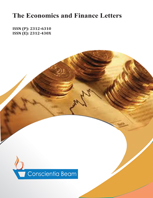Investigating the role of foreign capital inflows and economic freedom in poverty alleviation
DOI:
https://doi.org/10.18488/29.v10i1.3261Abstract
Many developing countries are still suffering considerable poverty despite the enormous amounts of international development aid channeled to them. This phenomenon raises the question of what role foreign capital plays in these countries. Our study focused on the role of foreign capital (foreign direct investment and foreign aid) and economic freedom in poverty alleviation in developing and least-developed countries using panel data from 1995 to 2018 for 71 countries. We employed several econometric techniques, such as dynamic ordinary least squares, fully modified ordinary least squares, dynamic fixed effects, and pooled mean group regression methods. Furthermore, we performed the Granger causality test, tested the impulse response function, and conducted variance decomposition analysis. In our long-run estimations, we found that while foreign direct investment could significantly alleviate poverty, it increased poverty in the short run. On the other hand, foreign aid played no significant role in poverty alleviation in either the short or the long run. Moreover, to alleviate poverty, economic growth and economic freedom are essential; our findings consistently demonstrated that they play a crucial role in poverty alleviation. We also found bidirectional causality between poverty alleviation and population growth, while a unidirectional causal linkage was found from poverty alleviation to foreign aid. We conclude that policymakers should develop a new paradigm of developmental assistance, and governments should create an enabling environment for foreign investment to support their growth plan.

